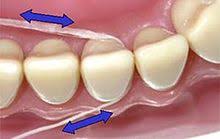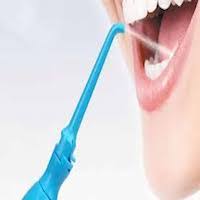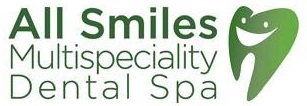Dental floss – The Pros and Cons
Why does it matter?
Nothing is more admiring than a gorgeous, healthy smile. Take care of your teeth and gums is about more than just good looks. Poor oral hygiene may cause gum disease, cavities and tooth loss. Gum disease may lead to negatively impact on your heart health. It may even contribute to prematurity and low birth weight to your newborn.
Dental Floss

Brushing your teeth least twice a day with fluoride toothpaste is a good start, but regular brushing is not enough to clean out food particles, plaque, and bacteria from between teeth. For this reason, daily flossing is recommended by the Dental Association.
Who should use floss?
Everyone should floss. Flossing after brushing is the most important part of dental hygiene.
You should try to decide which is better for your teeth, dental floss or a Waterpik water flosser. Getting suggestions from your dentist is always good. This will also help you to understand the differences and similarities between the two so that you can decide which will provide the most benefit for you. It is important to understand each tool and understand what they can and can’t.
Waterpiks
A Waterpik, also known as a dental water jet, oral irrigator or water flosser, is an instrument that directs a surge of water at the teeth to help wash away food particles. Though the name Waterpik is a registered brand, the term is often used to describe any instrument that jets water into the teeth to clean them.

What are the benefits?
Pros
- Easy to use and control
- Able to clean each tooth in full
- It removes plaque, bacteria, and food particles from between teeth. Using floss is also allows you to wipe each tooth clean of sticky plaque before it can turn into tartar.
- The major benefit of using floss is control. Flossing manually allows you to mainly wipe down each tooth, in an up and down motion, and to remove the floss between teeth.
What are the disadvantages?
Cons
- It will not reach some areas
- It may cause your gums to bleed
- Some people are not being able to reach certain areas of the mouth easily when relying only on floss. You may also have a hard time getting between teeth that are very close together or congested. If you floss too far down below the gum line, your gums may bleed and it will lead to dental disease.
- It’s vital to wash your mouth after you floss. This helps expel plaque and buildup scratched free from teeth.
As a conclusion
The best dental cleanliness technique is regularly one you will stick to, appreciate, and can see yourself using daily. Numerous people lean toward the control they get from manual flossing. Others rave about the crisp, deep-clean feeling they get after utilizing a Waterpik.
Both of the Waterpiks and flossing are good ways to take care of teeth and gums, in addition to brushing. For the definitive in clean and in plaque removal, consider using both twice a day. Make sure to talk with your dental specialist about any concerns you may have. They can also help you to determine the best option for you.
Leave a reply

Leave a reply